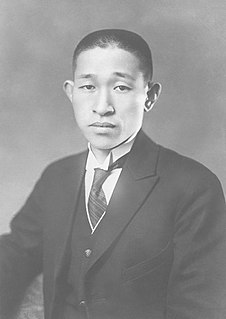A Quote by Michael Arrington
Customer research produces bland products. We're producing a piece of art.
Related Quotes
We grow by letting the customer tell us. So when the customer tells us that they're frustrated, that they just got their catalogue and we're already out of a product they wanted, then it tells me that we're not making enough. We let the customer tell us instead of creating an artificial demand for our products. Any time you're making products that people don't need, you're at the mercy of the economy, you're at the mercy of whatever is going on. So we tried to avoid that situation.
There are new ways of producing food, film, clothing, and research that steer clear of using animals. Some of those products are functionally equivalent or even superior to what we're used to. Now corporations, legislatures, and other institutions are responding, and supporting these shifts, so we're seeing seismic changes throughout society.
A good writer knows that if her style and perceptions are really cooking, she can bring anything off. It's okay, of course, for novelists to depict bland, average families living bland, average lives in bland, average towns. But it isn't okay when those novelists don't outshine their bland, average subjects.
Discovery still happens in the writing. You start in nonfiction with a whole lot more going for you, because all the discovery isn't waiting to be made. You've made some of it in the research. As you get deeper into a piece and do more research, the notes are in the direction of the piece - you're actually writing it.
At the end of the day, customer choice is essential. And we don't make products that compete with Apple, nor make products that compete with Google. Our customers come in both iOS and Android flavors, and I hope our customers can still buy the products they want to purchase wherever they want to purchase them.
Foremost is the principle that the purpose of consumer research is to understand the customer's needs and wishes, and thus design product and service that will provide better living for him in the future. A second principle is that no one can guess the future loss of business from a dissatisfied customer.



































